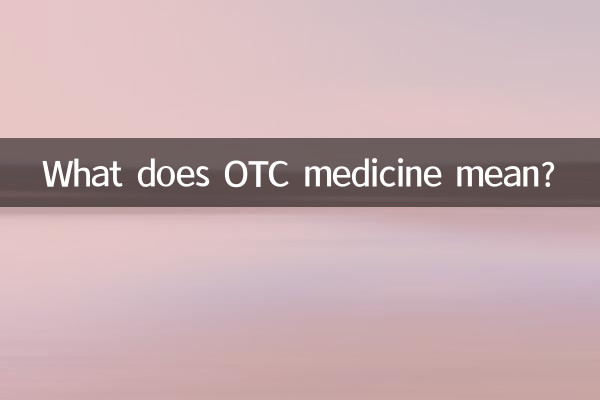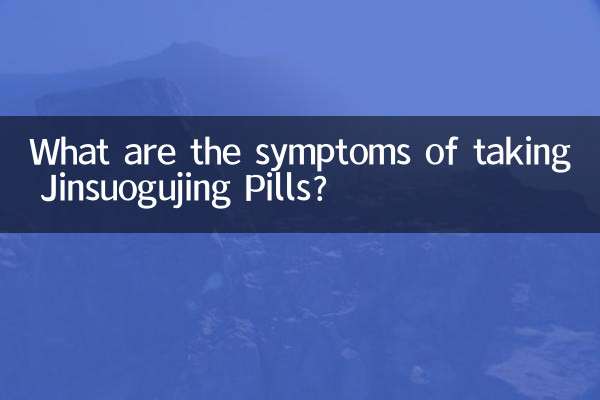What does OTC mean?
OTC isOver The CounterThe abbreviation of "over-the-counter medicine" in Chinese. It refers to medicines that consumers can purchase directly in pharmacies, supermarkets or online platforms without the need for a doctor's prescription. OTC medicines are usually used to treat common ailments and pains, such as colds, headaches, stomachaches, etc. They are highly safe, have few side effects, and are easy to use.
The following is a compilation of OTC-related information on hot topics and hot content on the Internet in the past 10 days:

| hot topics | Hot content | Related OTC drugs |
|---|---|---|
| High incidence of colds in spring | The temperature has fluctuated greatly recently and the number of cold patients has increased. Experts recommend preparing cold medicine. | Ganmaoling, Isatis root, Lianhua Qingwen |
| Gastrointestinal health | More dinner parties and more frequent indigestion problems | Jianweixiaoshi tablets, lactic acid bacterium tablets |
| skin allergies | Spring pollen allergies and seasonal skin problems cause concern | Loratadine, Piyanping |
| vitamin supplement | Vitamin deficiency among workplace workers sparks discussion | Vitamin C, vitamin B complex |
| sleep disorders | Work stress leads to insomnia issue in the spotlight | Anshen brain supplement, melatonin |
Classification of OTC drugs
According to the regulations of the National Medical Products Administration, OTC drugs are divided into two categories:
| Classification | Features | Example |
|---|---|---|
| Class A OTC | Need to be purchased in pharmacies under the guidance of a licensed pharmacist | Cold medicine, antipyretic medicine |
| Class B OTC | It is safer and can be purchased in supermarkets and other non-pharmacy channels. | Vitamins, Band-Aids |
How to use OTC drugs correctly
1.Read the instructions carefully: Understand the indications, usage and dosage, contraindications and other information.
2.Do not combine medications randomly: Avoid overdosage caused by repeated use of medicines with the same ingredients.
3.Pay attention to the validity period: Expired medicines are not only less effective, but may also produce harmful substances.
4.Use with caution for special groups: Pregnant women, children, the elderly, etc. should use it under the guidance of a physician.
5.If symptoms persist, seek medical attention: If the symptoms are not relieved after taking it for 3 days, you should see a doctor in time.
OTC drug purchasing trends
| Purchase channels | Proportion | Popular categories |
|---|---|---|
| Offline pharmacies | 65% | Cold medicine, gastrointestinal medicine |
| E-commerce platform | 30% | health products, vitamins |
| Supermarket convenience store | 5% | Band-Aids, disinfectants |
The development prospects of OTC drugs
With the improvement of people's health awareness and the increasing demand for self-medication, the OTC drug market has shown a steady growth trend. In particular, there will be greater development in the following areas:
1.Internet + medical health: The convenience of online consultation and drug delivery drives OTC sales.
2.Traditional Chinese Medicine OTC: The modernization and standardization process of traditional Chinese medicine is accelerating.
3.Function breakdown: There are more and more specialized OTC products targeting different groups of people and different scenarios.
4.health management: Extend from simple treatment to preventive health care.
To sum up, OTC drugs, as an important part of the medical system, not only facilitate the people's daily medication needs, but also reduce the pressure on medical institutions. However, consumers still need to improve their awareness of drug safety and use OTC drugs rationally.

check the details

check the details